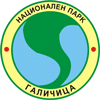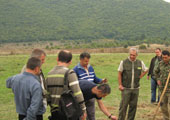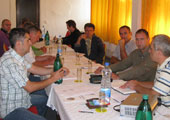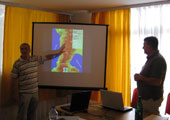Support To National Park “Galicica”
About the project:
There are more than 5000 inhabitants living on the territory of the National park Galicica, in 17 villages along the coast of Lake Ohrid and Lake Prespa. They use the natural resources of the park traditionally. Junipers from blue juniper (Juniperus communis) and mountain tea (Sideritas raeseri) are among the most popular forest products. Wild herbs such as thume (Lat.Thymum), yarrow (Lat. Achillea millefolium) immortelle (Lat. Helichrysum) and other plants grow on the vast pastures, and the mountain is especially rich with bars, berries etc. Also, the production of of honey of forest meadows always awakens interest and is practiced today. All these natural sustainable resources can be used. Some herbs and fruits can be cultivated in order to reduce pressure on natural populations of these plants. In addition, some parts of the park are traditionally used for grazing sheep. This form of land use had a significant impact on the landscape creating spacious open pastures in forest zones. These grasslands have rich vegetation, grass and other plants that contribute to the natural values of the national park.According to international standards about one quarter of the territory of the park can be used in sustainable and traditional ways. Agricultural products from these areas should be organically produced and marketed properly, such as meat, cheese and wool. In line with the new management plan for the park the development of sustainable use and production of berries and other natural resources is proposed. Organic production growth and use should support the rich biodiversity of the park. In this way, they will not be contrary to the purpose of protecting the park.
Timeframe:
June 2009 – October 2009Partners:
Public institution National Park “Galicica”Results:
- Commented overview analysis of international experience in the use of natural resources in protected areas
- Critical review of the study for other berries made of the NPG in 2008 and assessment of the possibilities for organic production
- Commented overview of the market situation of other berries and organic products with special emphasis on mountain tea (Sideritas raeseri), bar (Rosa sp.) Smreklinkite blue juniper (Juniperus communis), organic sheep and organic beekeeping
- Commented overview of potential business partners for production, processing, purchase and trade of mountain tea (Sideritas raeseri), bar Rodza sp.) Blue junipers (Juniperus communis), organic sheep and organic beekeeping
- Commented review the parts of the park that are suitable for sustainable collection of forest fruits and other parts of the park that are suitable for organic production, organic sheep and organic beekeeping
- Business concepts and plans
- Recommendations for branding and system for control of the quality of the products
- Recommendations to include centers for visitors and information points PINPG, local souvenir shops, restaurants and hotels
- A recommendation for possible financial and technical support, including state subsides, EU funds and other programs
- Training for potential and interested farmers and gatherers of wild plants
Downloads:
StudySupported by:

 |  |  |  |  |  |  | |






Find us